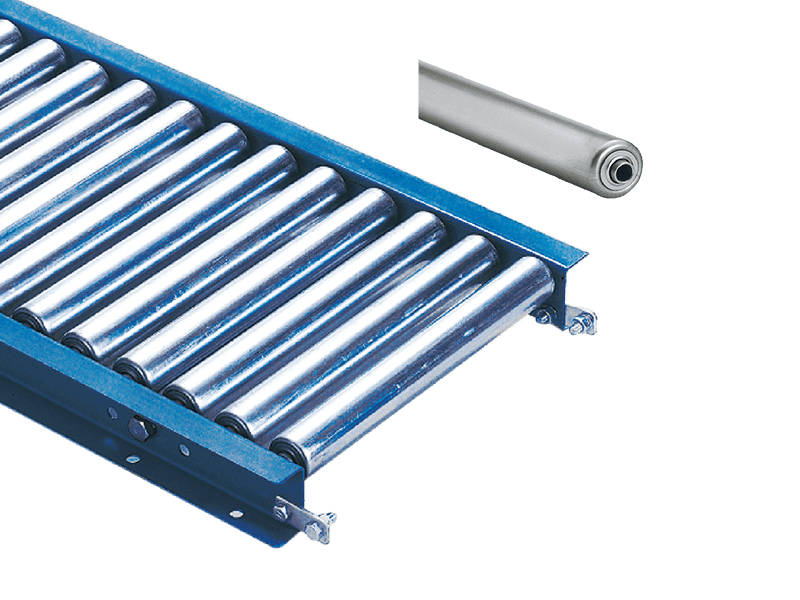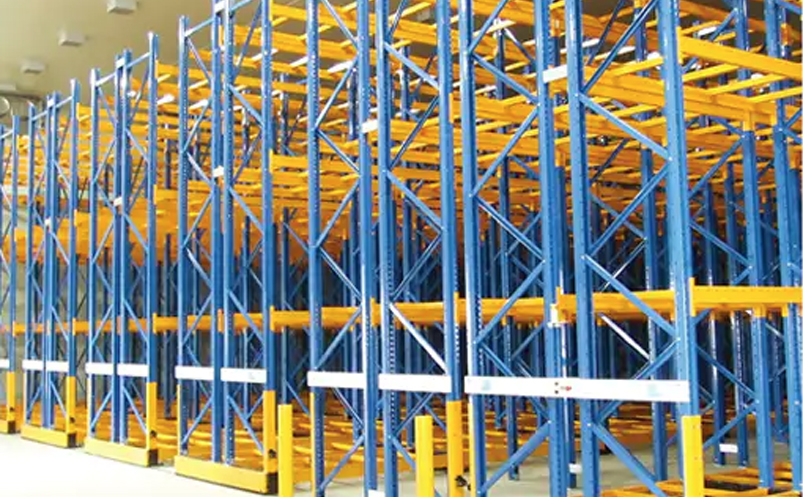In the modern era of logistics and manufacturing, the heartbeat of any successful operation lies in its ability to move goods swiftly, safely, and efficiently. As industries increasingly lean toward automation, one of the most understated yet transformative components of warehouse infrastructure is the roller conveyor system. Though simple in design, roller conveyors play a crucial role in orchestrating seamless product flow across complex operations.
Understanding Roller Conveyors and Their Role
Roller conveyors are mechanical systems composed of evenly spaced cylindrical rollers that support and transport materials along a designated path. Depending on their design and purpose, they can be gravity-driven or powered by motors, chains, or belts. Their flexibility allows them to accommodate a wide range of goods—from cartons and pallets to bins and containers—making them a foundational element in both manual and automated facilities.
In automated warehouses, roller conveyors serve as the arteries of material movement, connecting workstations, storage areas, sorting zones, and shipping docks. They reduce the need for manual handling, thereby minimizing delays, workplace injuries, and errors.
Enhancing Workflow Through Streamlined Material Flow
Continuous and Predictable Product Movement
One of the defining strengths of roller conveyors is their ability to create continuous, predictable flow. In automated systems, timing and precision are everything. Conveyor systems ensure materials move consistently from one process to another without interruptions. For example, items can flow from storage racks to picking stations, then to packing lines, and finally to outbound shipping—without requiring forklifts or manual transfer.
This steady rhythm not only accelerates throughput but also helps automated control systems—such as warehouse management systems (WMS) and programmable logic controllers (PLCs)—to synchronize tasks and reduce idle time between processes.
Reducing Bottlenecks
Workflow bottlenecks are the bane of automated operations. They often arise when manual handling, uneven workloads, or delayed transfers disrupt the process chain. Roller conveyors mitigate these issues by ensuring even distribution of workload and by buffering materials during high-demand cycles. Accumulating roller conveyors, for instance, allow products to queue temporarily without pressure or collision, maintaining smooth flow even during downstream delays.
Integration with Sortation and Storage Systems
Modern warehouses rely heavily on automated storage and retrieval systems (AS/RS) and sortation conveyors. Roller conveyors act as intermediaries that seamlessly connect these high-tech systems. As goods are retrieved, sorted, or packed, conveyors ensure precise transfer without manual intervention. This interconnected network creates a synchronized environment where every movement is traceable, timely, and optimized.
Improving Efficiency and Labor Utilization
Reducing Manual Handling and Fatigue
Manual lifting and carrying of goods not only slow down operations but also contribute to worker fatigue and injuries. By introducing roller conveyors, warehouses eliminate repetitive and strenuous handling tasks. This allows employees to focus on higher-value responsibilities—such as quality control, machine supervision, or data monitoring—enhancing overall labor productivity.
Consistency in Handling Delicate or Heavy Items
In sectors like e-commerce, electronics, or food distribution, product integrity is non-negotiable. Roller conveyors provide gentle, controlled transport that reduces the risk of product damage compared to forklifts or hand carts. For heavy-duty items, powered roller conveyors distribute weight evenly and ensure safe, consistent motion, minimizing strain on both materials and equipment.
Supporting Lean Manufacturing Principles
Lean manufacturing emphasizes waste reduction, and roller conveyors embody this principle by eliminating non-value-added movement. With predefined routes and automated control, material transport becomes highly efficient. This leads to reduced motion waste, faster cycle times, and improved process reliability—all core tenets of lean operation.
Integration with Automation Technologies
The real power of roller conveyors in modern warehouses lies in their ability to integrate with advanced automation and data-driven technologies.
Smart Sensors and Real-Time Monitoring
Today’s roller conveyor systems are far more sophisticated than their early mechanical predecessors. They can be equipped with smart sensors, RFID scanners, and vision systems that detect product position, weight, and identification in real time. This data enables precise routing decisions—such as diverting products to specific packing lines or initiating quality checks—without human input.
By feeding data into warehouse management systems, these conveyors become part of a smart logistics ecosystem that can adjust dynamically to fluctuations in demand or operational conditions.
Robotics and Conveyor Synergy
Automated guided vehicles (AGVs) and robotic arms are increasingly used for picking and placement. Roller conveyors complement these technologies by serving as transfer platforms. For instance, a robot may load products onto a conveyor that carries them to a palletizing station. This seamless interaction reduces dwell time and enhances synchronization between robotic and mechanical systems.
Compatibility with IoT and Predictive Maintenance
Through Internet of Things (IoT) connectivity, roller conveyors can transmit operational data—such as motor temperature, roller speed, and vibration levels—to maintenance software. This enables predictive maintenance, identifying potential issues before breakdowns occur. By minimizing unplanned downtime, warehouses maintain optimal uptime and avoid costly interruptions.

Flexibility and Scalability in Design
Modular Configurations
One of the greatest advantages of roller conveyors is their modular design. They can be easily extended, reconfigured, or relocated as business needs evolve. This adaptability allows warehouses to respond to changing product types, seasonal fluctuations, or expansions in automation capacity without overhauling the entire system.
Customization for Different Applications
From lightweight cartons to bulky pallets, roller conveyors can be tailored to accommodate diverse materials. Options include gravity conveyors for low-cost, energy-free transport or motorized rollers with variable speed control for precision movement. Curved, inclined, and merge conveyors further enhance system versatility, ensuring the layout fits seamlessly within the warehouse’s architecture.
Space Optimization
In urban or high-density logistics environments, space is a precious resource. Roller conveyors can be integrated into multi-level or overhead transport systems, making full use of vertical space. By reducing the need for wide aisles or manual pathways, they maximize storage capacity and enhance floor space utilization.
Safety and Reliability
Reducing Workplace Hazards
Safety is a paramount concern in any warehouse. Roller conveyors help mitigate risks associated with manual transport, such as lifting injuries and collisions. Additionally, modern systems include emergency stop controls, guarding mechanisms, and anti-pinch designs, ensuring operators remain protected at all times.
Reliable Operation Under Continuous Loads
Automated warehouses often run 24/7, demanding unwavering reliability. Roller conveyors are engineered for long service life and minimal maintenance, thanks to durable materials and low-friction components. Proper lubrication, alignment, and periodic inspection ensure consistent performance under heavy-duty conditions.
Cost-Effectiveness and ROI
Lower Operational Costs
By automating material flow, roller conveyors reduce reliance on manual labor and forklifts, which translates to substantial long-term savings. Energy-efficient motorized rollers further minimize power consumption compared to other automated transport systems.
Decreased Product Damage and Returns
Product damage not only increases costs but can harm a company’s reputation. The controlled motion of roller conveyors significantly lowers impact risk, ensuring items reach their destination in pristine condition—particularly vital for e-commerce and fragile goods industries.
Rapid Payback Period
While the initial investment in conveyor systems can be significant, the return on investment (ROI) is often rapid. Reduced labor costs, higher throughput, and minimized downtime contribute to quick payback—making roller conveyors one of the most cost-effective automation upgrades for growing facilities.
Environmental Considerations
In an age where sustainability is increasingly integral to operations, roller conveyors contribute positively to green warehouse initiatives. Gravity conveyors, for instance, require no power, offering an entirely energy-free transport solution. Even powered systems now feature energy-efficient motors and regenerative braking technologies that reduce carbon footprints.
Additionally, their long lifespan and modular design promote resource efficiency, as components can be replaced or repurposed without discarding the entire system.
Real-World Applications in Automated Warehouses
Roller conveyors find application across a spectrum of industries:
- E-commerce and fulfillment centers: Rapid sorting, packing, and dispatch of thousands of parcels daily.
- Food and beverage manufacturing: Hygienic, corrosion-resistant conveyors for perishable goods.
- Automotive and electronics production: Precise material movement for assembly lines.
- Pharmaceutical logistics: Gentle handling systems that maintain product integrity and traceability.
In each case, roller conveyors serve as the invisible backbone that keeps automated processes synchronized, efficient, and scalable.
The Future of Roller Conveyor Technology
The evolution of roller conveyors is far from over. As artificial intelligence (AI), machine vision, and digital twins gain traction in industrial automation, conveyors are becoming smarter, more adaptive, and self-optimizing. Imagine systems that automatically adjust speed based on real-time workflow data or reroute materials to bypass congested zones.
Future warehouses may even integrate autonomous conveyor modules capable of self-diagnosis and coordination with mobile robots, pushing the boundaries of what automated logistics can achieve.
Conclusion
In the grand architecture of automated warehousing, roller conveyors might appear as simple mechanical links—but their impact is profound. They enable continuous material flow, enhance labor efficiency, and harmonize seamlessly with advanced automation technologies.
By reducing waste, improving safety, and increasing throughput, roller conveyors stand as one of the most practical and scalable solutions for modern logistics challenges. As industries continue to evolve toward smarter, more interconnected systems, the humble roller conveyor remains an indispensable ally in the pursuit of operational excellence.







